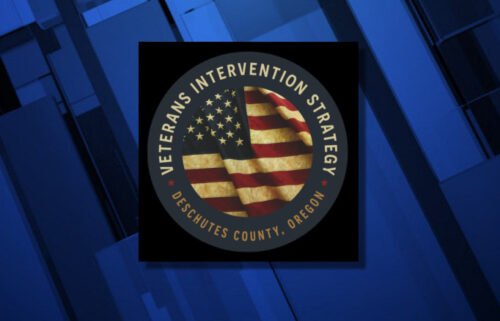Portland federal jury convicts Pennsylvania man of distributing fentanyl that caused 3 overdoses, 2 fatal

PORTLAND, Ore. (KTVZ) — A federal jury in Portland found a Pennsylvania man guilty Tuesday of distributing a fentanyl analogue on AlphaBay, a former darknet marketplace, that caused the overdoses of three people in Oregon, two of whom died.
Henry Konah Koffie, 37, of Darby, Pennsylvania, was found guilty on two counts of distribution of a controlled substance resulting in death, one count of distribution of a controlled substance resulting in serious bodily injury, and five counts of distribution of a controlled substance, according to a news release from the U.S. Attorney's Office for the District of Oregon:
“Henry Koffie sold illicit fentanyl analogues on the darknet, exploiting profits while risking the lives of many Americans addicted to dangerous opioids. Today, fentanyl can be purchased for less than a few dollars in many American cities. The mass availability of fentanyl in our country is staggering and represents a profound public safety and health threat,” said Steven T. Mygrant, Chief of the Narcotics and Criminal Enterprises Unit of the United States Attorney’s Office for the District of Oregon.
“We in law enforcement will continue doing our part to hold fentanyl dealers like Henry Koffie accountable, but we implore all community members to be vigilant in protecting themselves and their loved ones. If you possess pills not dispensed by a licensed pharmacist, assume they are fake and contain a deadly dose of fentanyl.”
“Today’s conviction of Henry Koffie for distributing fentanyl on AlphaBay resulting in the overdoses of three people, two of whom died, serves as a reminder of the grave danger posed by the illegal distribution of synthetic opioids,” said Special Agent in Charge Robert Hammer, who oversees Homeland Security Investigations (HSI) operations in the Pacific Northwest. “Using the darknet does not provide anonymity. HSI special agents are highly skilled in conducting investigations that involve darknet markets, cryptocurrency transactions, and other illicit online activities. HSI will continue to work with our law enforcement partners to investigate and bring to justice those who contribute to the opioid epidemic that has devastated communities across America.”
“The conviction of Henry Koffie was possible due to the excellent relationships between federal and local law enforcement in Portland. The United States Postal Inspection Service values our partnerships with the Portland Police Bureau, Homeland Security Investigations, and United States Attorney’s Office which led to the conviction of this purveyor of death on a national scale. Koffie’s reckless lack of regard for the lives of others is reprehensible and ends here. We hope this verdict allows the victims and their families to start the healing process,” said Tony Galetti, Inspector in Charge of the United States Postal Inspection Service (USPIS), Seattle Division.
“To see the senseless loss of life through overdoses caused by dangerous and illegal drugs is heartbreaking for families and our community,” said Assistant Chief Art Nakamura of the Portland Police Bureau (PPB). “We hope this verdict is the first step in healing for the families involved. This is a great example of the impact law enforcement can have when they join efforts to combat illegal drugs that are inflicting harm on our communities. Thank you to the Narcotics and Organized Crime Unit and our partners, including Homeland Security Investigations, the FBI, Philadelphia Police Department, Pennsylvania State Police, United States Postal Inspection Service, Multnomah County District Attorney’s Office, and United States Attorney’s Office who worked together to bring justice to the victims and their families.”
According to court documents, in just over a year, three Portland residents overdosed on furanyl fentanyl supplied by Koffie, a darknet narcotics vendor known as DNMKingpin and later Narcoboss on AlphaBay. The first victim was a 19-year-old student at Portland State University who, on May 2, 2016, overdosed 30 minutes after ingesting powdered furanyl fentanyl. Paramedics administered Naloxone and breathing assistance to the student, saving her life. Investigators interviewed the student’s source who said he supplied the student with the powdered furanyl fentanyl he purchased from DNMKingpin on AlphaBay.
One year later, on May 6, 2017, Portland Police Bureau (PPB) officers responded to a fatal overdose of a 27-year-old in southeast Portland. The victim’s roommates told the officers that the victim had ordered fentanyl from Narcoboss on AlphaBay who had advertised the furanyl fentanyl as “China White.” One roommate further told officers that he and the victim had ordered a gram of fentanyl from Narcoboss for $40 and that it had arrived in a USPS priority mail envelope shipped from Philadelphia.
Three weeks later, on May 29, 2017, PPB officers responded to a fatal overdose of another 27-year-old who had resided in northeast Portland. Officers located a small vial of furanyl fentanyl in the victim’s residence as well as a notebook containing information on accessing AlphaBay and a Bitcoin wallet. They further located an envelope in the victim’s trash can with a return address in Philadelphia.
Between May 25 and June 21, 2017, investigators conducted five controlled buys of powdered fentanyl from Narcoboss. All five orders were fulfilled from addresses in and around Philadelphia. Around the same time, investigators in Wisconsin and Pennsylvania located and identified Koffie’s fingerprints on packages of furanyl fentanyl resembling those shipped to law enforcement in Portland that were purchased from AlphaBay via Narcoboss.
Further investigation revealed that between April 6, 2016, and May 23, 2017, Koffie received 14 packages of furanyl fentanyl totaling approximately seven kilograms from distributors in China and Hong Kong. In May and June of 2017, two additional packages shipped to Koffie containing another half kilogram of furanyl fentanyl were intercepted by United States Customs and Border Protection (CBP). It was later determined that Koffie used an online postage company called Stampnik to purchase more than 5,700 postage labels he used to ship furanyl fentanyl throughout the United States, including the labels affixed to parcels seized in Oregon, Wisconsin, and Pennsylvania.
On July 12, 2017, Koffie was charged by criminal complaint in the District of Oregon with distribution of a controlled substance resulting in serious bodily injury or death. Later, on April 21, 2021, he was charged by superseding indictment with conspiracy to distribute a controlled substance, distribution of a controlled substance resulting in serious bodily injury, distribution of a controlled substance resulting in death, and distribution of a controlled substance. The conspiracy charge was dismissed before trial.
Koffie faces a maximum sentence of life in prison, a $10 million fine and three years’ supervised release. He will be sentenced on May 30, 2023, before United States District Court Judge Michael W. Mosman.
Koffie is under federal indictment in two other judicial districts. On August 1, 2017, a federal grand jury in the Western District of Pennsylvania returned an indictment charging Koffie with four counts of distributing a controlled substance. On September 20, 2017, a federal grand jury in the Eastern District of Pennsylvania returned a two-count indictment charging Koffie with distributing a controlled substance and distributing a controlled substance within 1,000 feet of a playground. Both cases are pending.
This case was investigated by HSI, USPIS, and PPB with assistance from the FBI, Oregon-Idaho High Intensity Drug Trafficking Area (HIDTA) task force, CBP, Philadelphia Police Department, and Pennsylvania State Police. It was prosecuted by Scott M. Kerin, Parakram Singh, and Andrew T. Ho, Assistant United States Attorneys for the District of Oregon.
On July 20, 2017, the Justice Department, in partnership with the FBI, United States Drug Enforcement Administration (DEA), HSI and IRS-Criminal Investigation (IRS-CI), seized and shut down AlphaBay, which, at the time, was the largest criminal marketplace online. At the time of its seizure, AlphaBay had operated for over two years on the darknet and was used to sell illegal drugs, stolen and fraudulent identification documents and access devices, counterfeit goods, malware and other hacking tools, firearms, and toxic chemicals throughout the world.
If you or someone you know suffers from addiction, please call the Lines for Life substance abuse helpline at 1-800-923-4357 or visit www.linesforlife.org. Phone support is available 24 hours a day, seven days a week. You can also text “RecoveryNow” to 839863 between 8am and 11pm Pacific Time daily.



